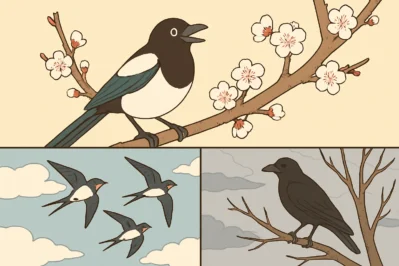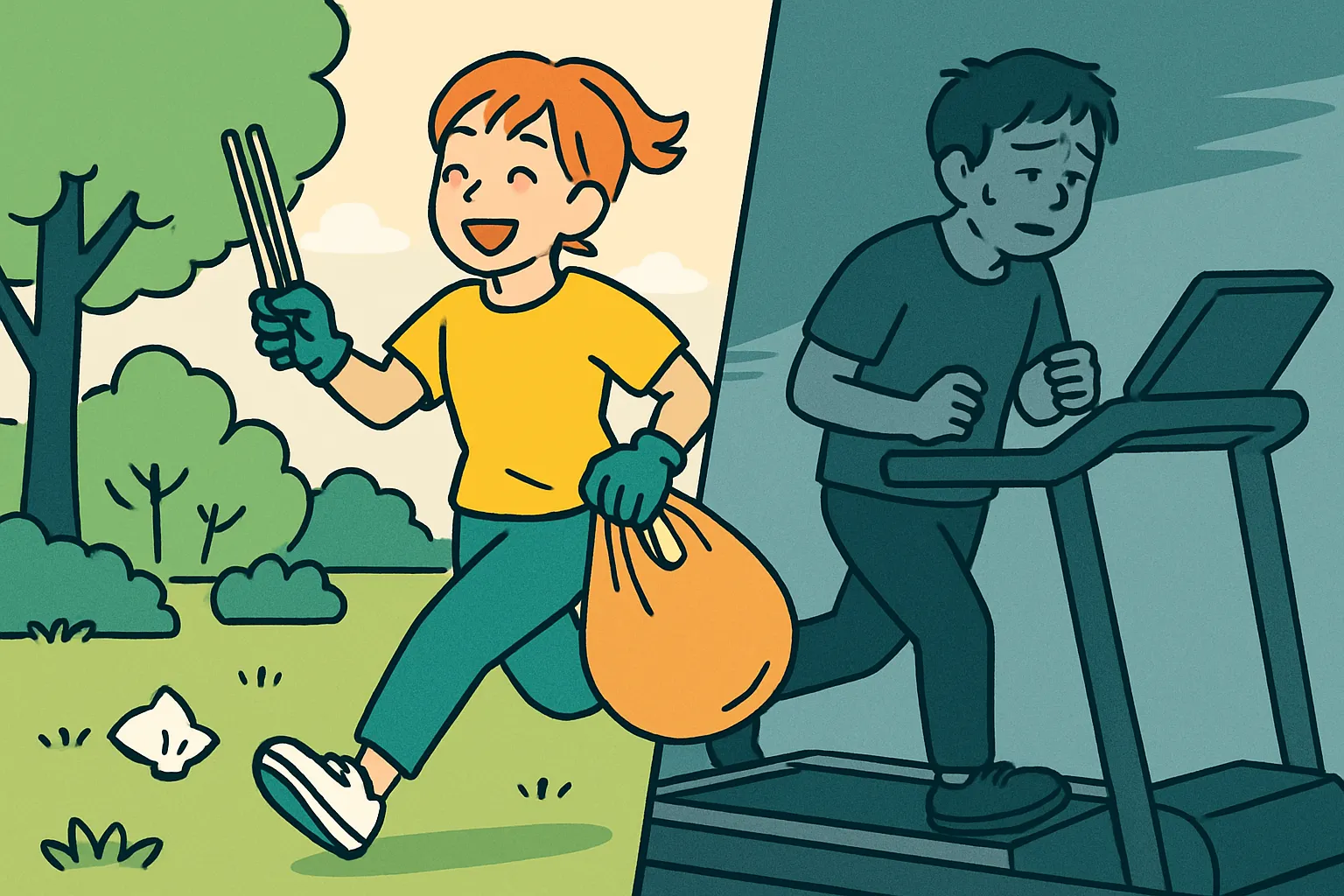Decode the Weather Like a Korean!
Hello! It’s [Maeil Hangeul] here to upgrade your Korean skills!
Have you ever looked at the sky and wondered if it holds a secret message? In Korea, there are many fun and interesting superstitions related to the weather and animals. Today, we’re going to learn some of these expressions so you can understand a deeper layer of Korean culture. These are perfect for starting a fun conversation with your Korean friends!
Especially these days in Korea, a popular K-drama called “The City Astrologer” features a main character who always talks about these old beliefs, making them trendy again among young people! Let’s dive in!
Core Expressions You Need to Know
Here are three key expressions that will make you sound like a local.
- 1. 까치가 울면 반가운 손님이 온다. (Kkachi-ga ulmyeon bangaun sonnim-i onda.)
- Romanization: Kkachi-ga ulmyeon bangaun sonnim-i onda.
- English Meaning: If a magpie cries, a welcome guest will arrive.
- Detailed Explanation: The magpie (까치) is considered a bird of good fortune in Korea! So, if you hear its distinct cry, Koreans believe something good is about to happen, like a friend you’ve been missing suddenly visiting. It’s a very positive and lovely superstition. You can use this phrase when you hear a magpie to share a hopeful feeling.
- 2. 제비가 낮게 날면 비가 온다. (Jebi-ga natge nalmyeon bi-ga onda.)
- Romanization: Jebi-ga natge nalmyeon bi-ga onda.
- English Meaning: If swallows fly low, it will rain.
- Detailed Explanation: This one is almost scientific! The belief is that before it rains, the air pressure changes, and insects fly closer to the ground. Swallows (제비), which eat insects, follow them by flying low. So, if you see swallows skimming the ground, it might be a good idea to grab your umbrella! It’s a classic piece of folk wisdom.
- 3. 까마귀가 울면 불길하다. (Kkamagwi-ga ulmyeon bulgilhada.)
- Romanization: Kkamagwi-ga ulmyeon bulgilhada.
- English Meaning: If a crow caws, it’s a bad omen.
- Detailed Explanation: This is the opposite of the magpie! Like in many Western cultures, the crow (까마귀) is often seen as a sign of bad luck. The word 불길하다 (bulgilhada) means “ominous” or “unlucky.” While not everyone truly believes this today, it’s a well-known superstition you might hear in dramas or from older Koreans.
Example Conversation
Let’s see how these expressions are used in a real conversation.
A: 와, 오늘 날씨 정말 좋다! 공원에 피크닉 갈까?
(Wa, oneul nalssi jeongmal jota! Gongwon-e pikeunik galkka?)
(Wow, the weather is so nice today! Should we go for a picnic in the park?)
B: 좋은 생각이야! 어? 방금 까치 소리 들었어? 까치가 울면 반가운 손님이 온다고 하던데.
(Jo-eun saenggak-iya! Eo? Banggeum kkachi sori deur-eoss-eo? Kkachi-ga ulmyeon bangaun sonnim-i onda-go hadeonde.)
(Great idea! Oh? Did you just hear a magpie? They say if a magpie cries, a welcome guest will arrive.)
A: 진짜? 드라마 “The City Astrologer” 주인공처럼 말하네! 와, 저것 봐. 근데 제비가 낮게 날고 있어.
(Jinjja? Deurama “The City Astrologer” ju-in-gong-cheoreom malhane! Wa, jeogeot bwa. Geunde jebi-ga natge nalgo iss-eo.)
(Really? You sound just like the main character from “The City Astrologer”! Wow, look at that. But the swallows are flying low.)
B: 어머, 그럼 비가 올지도 몰라. 아쉽지만 오늘은 집에서 파전이나 만들어 먹자.
(Eomeo, geureom bi-ga oljido molla. Aswipjiman oneur-eun jib-eseo pajeon-ina mandeur-eo meokja.)
(Oh my, then it might rain. That’s a shame, but let’s just make some Pajeon (savory pancake) at home today.)
Culture Tip & Trend Deep Dive
In Korea, the magpie (까치) isn’t just a bird; it’s a 길조 (giljo), a “bird of good omen.” It’s so beloved that it was even the mascot of the 1988 Seoul Olympics!
Thanks to the recent hit drama “The City Astrologer,” there’s a fun trend where young Koreans post pictures or videos of magpies on Instagram with the caption “반가운 손님 오려나?” (Bangaun sonnim oryeona? – “I wonder if a welcome guest is coming?”).
So, if you want to sound like you’re really in touch with Korean culture, don’t just say “I heard a magpie.” Instead, try saying “까치 소리 들으니까 좋은 일이 생길 것 같아” (Kkachi sori deureunikka jo-eun ir-i saenggil geot gata – “Hearing the magpie makes me feel like something good will happen”). Your Korean friends will be seriously impressed!
Let’s Practice!
Time to check what you’ve learned.
- Fill in the blank:
하늘을 보니 제비가 낮게 날고 있어요. 곧 ______ 올 것 같아요.
(Haneur-eul boni jebi-ga natge nalgo iss-eoyo. Got ______ ol geot gat-ayo.)
(I see swallows flying low in the sky. It seems like ______ will come soon.) -
Your Turn!
Have you ever seen a magpie (까치) in your country? What is considered a sign of good luck where you live? Try to write a short sentence in Korean or English!
Great job today! Keep an eye and an ear out for these signs from nature.
Leave a comment below with your answers or your own favorite superstition!






